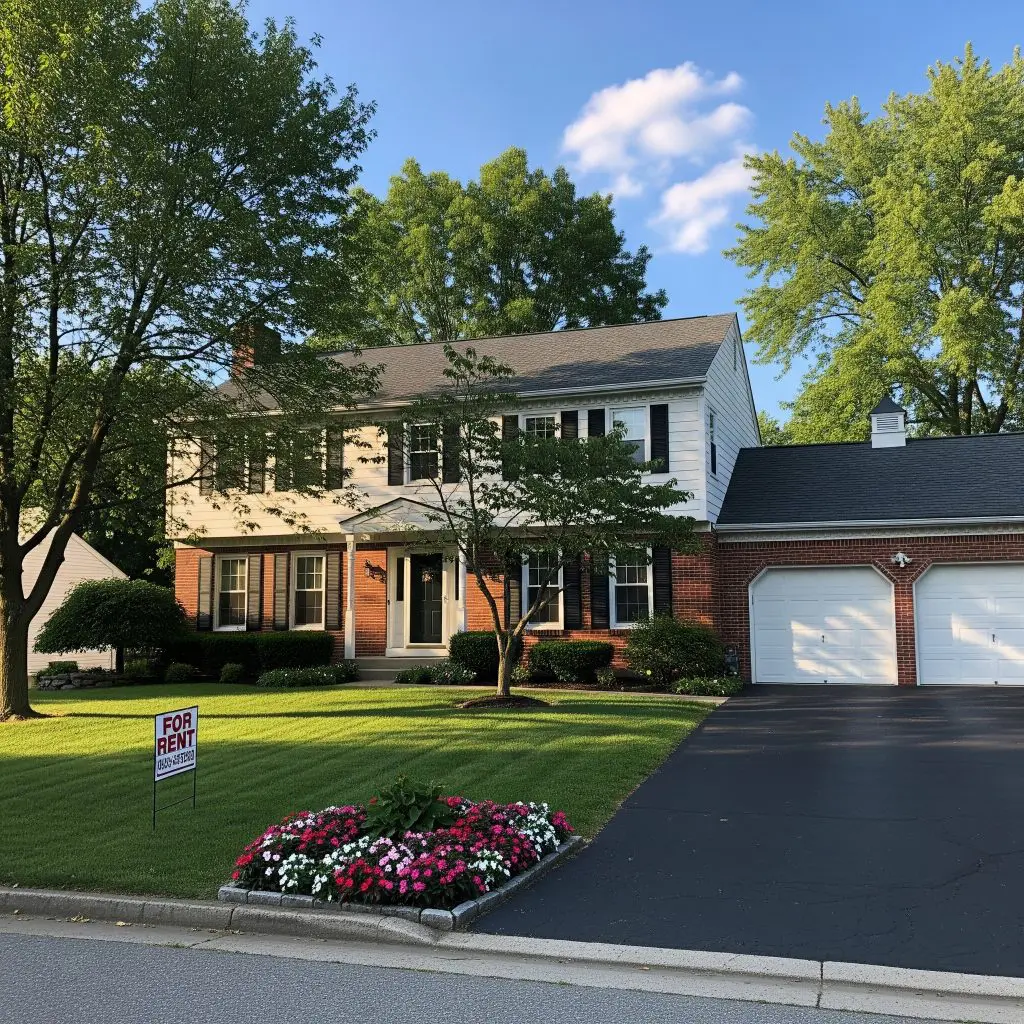Philadelphia – September 18, 2025: When a great rental property deal comes your way, you need a quick way to know if it’s worth exploring. That’s where the 1% Rule comes in. It’s a simple, back-of-the-envelope calculation that has served as a critical first filter for real estate investors for decades. The rule is straightforward: a property’s monthly rent should be at least 1% of its total purchase price.
While simple, using the 1% rule in real estate investing today requires a more nuanced understanding. It’s not a substitute for a full financial analysis, but it remains a powerful tool for sifting through hundreds of listings to find the handful of opportunities that are truly worth your time and due diligence. This guide will show you how to apply this rule effectively and how GHC Funding can help you finance a deal once you find it.
Decode the 1% Rule for Real Estate:
- How the 1% Rule Works and What It Doesn't Tell You
- The Pennsylvania Market: Applying the 1% Rule Today
- Your Financing Partner: GHC Funding's DSCR Loan Advantage
- External Resources for Pennsylvania Investors
- Q&A: Your 1% Rule and Financing Questions Answered
- 1. Is the 1% rule still relevant in today's market?
- 2. What if a property doesn't meet the 1% rule, but the numbers look good on a detailed analysis?
- 3. How does GHC Funding's DSCR loan help me if a property doesn't meet the 1% rule?
- 4. Can I get a DSCR loan for a property that is currently vacant?
- 5. Is there a minimum DSCR ratio that GHC Funding requires?
- 6. What kind of properties does GHC Funding finance with DSCR loans?
- 7. Is a DSCR loan a good option for an investor with a high DTI?
- Your Next Step: From Rule to Reality
- Get a DSCR loan quote in Pennsyvania.

How the 1% Rule Works and What It Doesn’t Tell You
The 1% Rule is a basic ratio designed to quickly screen for positive cash flow. To apply it, you simply take the property’s purchase price, including any immediate repair costs, and multiply it by 1%.
Formula:
Property Price + Immediate Repairs x 0.01 = Target Monthly Rent
For example, a property priced at $250,000 with $15,000 in required repairs would have a total purchase price of $265,000. To meet the 1% rule, the target monthly rent should be at least $2,650. If the market rent is lower than this, the property may not be a strong cash-flow deal and can be filtered out.
While the 1% Rule is a powerful starting point, it has limitations. It doesn’t account for all operating expenses, such as property taxes, insurance, property management fees, or a mortgage payment. It also doesn’t consider the property’s potential for appreciation or a significant change in the local rental market. Therefore, the 1% Rule should always be followed by a comprehensive financial analysis.
The Pennsylvania Market: Applying the 1% Rule Today
Pennsylvania’s diverse real estate markets, from major urban centers to quiet suburbs, offer unique opportunities for investors. While it can be challenging to find properties that perfectly meet the 1% rule in a seller’s market, they do exist, particularly in areas with a lower cost of living.
- Philadelphia: In a bustling city like Philadelphia, finding a property that meets the 1% rule can be difficult in highly competitive areas like Center City (zip code 19107). However, opportunities abound in emerging neighborhoods like South Philadelphia (zip code 19148) or Kensington (zip code 19134). Here, a savvy investor can find a multi-family property or a single-family home that needs some work, allowing them to purchase it at a lower price point and, with renovations, raise the rent to meet or exceed the 1% rule. The presence of major employers in healthcare and education provides a stable tenant base.
- Pittsburgh: As a hub for technology and medicine, Pittsburgh offers a mix of urban and suburban investment options. In areas like Lawrenceville (zip code 15201), known for its young professional population, you can find duplexes that are ripe for a value-add renovation. Look for properties with a purchase price in the low to mid $200,000s to meet the 1% rule with a monthly rent of around $2,000.
- Harrisburg: The state capital offers a stable real estate market driven by a consistent job base in government and healthcare. Properties are often more affordable here, making it easier to find deals that meet the 1% rule. For example, a home purchased for $180,000 would only need to rent for $1,800/month to meet the rule, a common rental price for the area.
The Ultimate DSCR Loan for Rental Property Quiz

Are you looking to expand your real estate investment portfolio? A DSCR loan might be the perfect tool to help you achieve your goals without relying on traditional income documentation. Test your knowledge with this quiz to see if you're ready to master the intricacies of a DSCR loan for rental property.
Your Financing Partner: GHC Funding’s DSCR Loan Advantage
Finding a property that meets the 1% rule is a critical first step. The next is securing the right financing. This is where GHC Funding provides a major advantage. Our DSCR (Debt Service Coverage Ratio) loan is specifically designed for investors who prioritize cash flow and want to scale their portfolios quickly.
Current Market Insights (as of September 18, 2025):
- Interest Rates: DSCR loan rates typically range from 7.25% to 9.00%. These rates are influenced by factors like your credit score (generally 660+), the property’s LTV (Loan-to-Value) ratio, and most importantly, the property’s DSCR ratio. A higher DSCR (1.20x or more) can result in a more favorable rate.
- Requirements:
- No Personal Income Check: We don’t verify your personal income or review your tax returns. Our underwriting is based on the property’s cash flow potential, making it easier to qualify and scale your portfolio.
- Entity Lending: The loan is typically made to an LLC or other business entity, providing liability protection and simplifying future transactions.
- Property Types: We offer financing for single-family rentals, multi-family properties (up to 4 units), and even short-term rentals, giving you the flexibility to invest in the right asset for your strategy.
At GHC Funding, we understand the investor’s journey. We offer a full suite of financing options including Bridge Loans for fix-and-flip projects, SBA 7a loans and SBA 504 Loans for owner-occupied commercial properties, and other forms of Alternative Real Estate Financing. Our flexible underwriting and streamlined process are designed to help you move from contract to close with speed and confidence.
Test Your Pennsylvania Investor Prowess!

Pennsylvania, often called the "Keystone State," holds a unique place in American history and its economy. From the historic streets of Philadelphia to the industrial legacy of Pittsburgh and the scenic beauty of its mountains, Pennsylvania offers diverse opportunities for real estate investors. If you're considering expanding your portfolio in this foundational state, especially with flexible financing options like no income verification rental property loans for new investors, understanding its key characteristics is a valuable asset.
How well do you know the state that truly is the keystone of America? Take our quick quiz!
External Resources for Pennsylvania Investors
For a successful investment strategy in Pennsylvania, it’s essential to leverage reputable local resources:
- Pennsylvania Real Estate Commission: The official state body that regulates real estate professionals and can provide information on licensing and legal requirements. https://www.pa.gov/agencies/dos/department-and-offices/bpoa/boards-commissions/real-estate-commission
- Pennsylvania Real Estate Investors Association (REIA): Joining a local REIA is a fantastic way to network, find off-market deals, and learn from experienced investors in your area. https://www.meetup.com/ko-KR/pennsylvania-real-estate-investors-association/
- Pennsylvania Housing Finance Agency (PHFA): While focused on affordable housing, this agency provides valuable data on market trends and community needs that can help you identify high-demand areas for investment. https://www.phfa.org/
- Zillow Rental Market Data: Zillow provides free, publicly available data on rental market trends by city and zip code, allowing you to quickly verify if a property’s projected rent meets the 1% rule. This can be a great first step in your due diligence. https://www.zillow.com/rental-manager/market-trends/
Quiz on Pennsylvania Rental Property Laws

This quiz is designed to test your knowledge of the key laws and regulations for owning and managing a Pennsylvania rental property. By understanding these rules, you can ensure legal compliance and a positive landlord-tenant relationship.
Q&A: Your 1% Rule and Financing Questions Answered
1. Is the 1% rule still relevant in today’s market?
Yes. While it may be more difficult to find properties that meet the rule, it’s still a relevant and powerful tool for a quick initial assessment. It allows you to immediately filter out properties that are highly unlikely to be cash-flow positive.
2. What if a property doesn’t meet the 1% rule, but the numbers look good on a detailed analysis?
A property that doesn’t meet the 1% rule might still be a great deal. The rule is just a guideline. If a deeper analysis of the property’s operating expenses and debt service shows a strong positive cash flow, then it’s likely a good investment.
3. How does GHC Funding’s DSCR loan help me if a property doesn’t meet the 1% rule?
Our DSCR loan qualifies the property based on its Debt Service Coverage Ratio (DSCR), not the 1% rule. So long as the property’s Net Operating Income (NOI) is greater than its debt service, it can be financed. A property that rents for 0.8% of its value but has very low expenses and a small mortgage could still have an excellent DSCR.
4. Can I get a DSCR loan for a property that is currently vacant?
Yes. GHC Funding can underwrite a DSCR loan on a vacant property based on a professional rent appraisal. This allows you to purchase a vacant property and secure a tenant after closing.
5. Is there a minimum DSCR ratio that GHC Funding requires?
While a DSCR of 1.20x or higher is generally preferred, our flexible underwriting allows us to work with properties that have a slightly lower ratio, albeit with a slightly higher interest rate.
6. What kind of properties does GHC Funding finance with DSCR loans?
We finance a wide range of residential investment properties, including single-family rentals, multi-family properties with up to four units, and short-term rentals.
7. Is a DSCR loan a good option for an investor with a high DTI?
Yes, absolutely. Since DSCR loans don’t require personal income or DTI verification, they are an ideal financing solution for investors who have hit the DTI limits with traditional bank loans.
Your Next Step: From Rule to Reality
The 1% Rule is a fantastic first step in real estate investing. It helps you quickly identify potential cash-flowing properties and avoid wasting time on those that don’t fit your criteria. But finding the property is only half the battle. You need a trusted partner with the right financing to help you turn that potential into profit.
GHC Funding is that partner. With our specialized loan programs, market expertise, and commitment to a streamlined process, we can help you finance your next cash-flowing property.
Ready to find and fund your next investment in Pennsylvania? Visit GHC Funding at www.ghcfunding.com to explore our loan options or call us at 833-572-4327 to speak with an investment property expert today.

